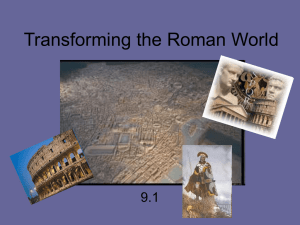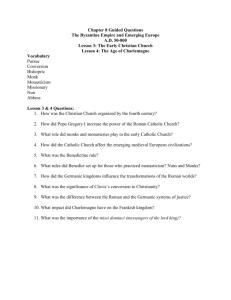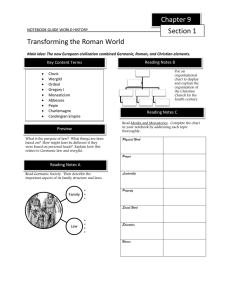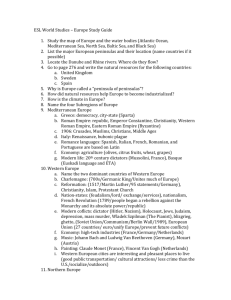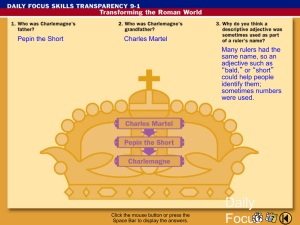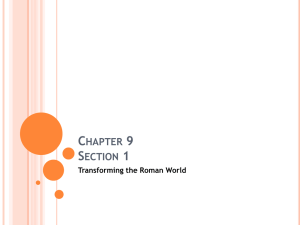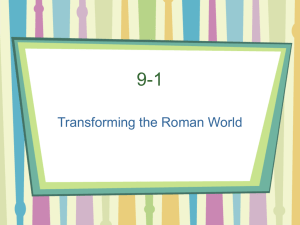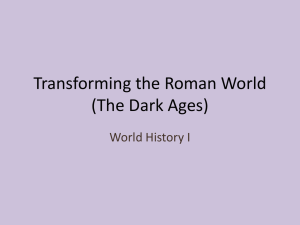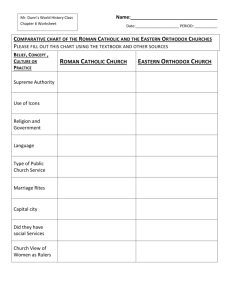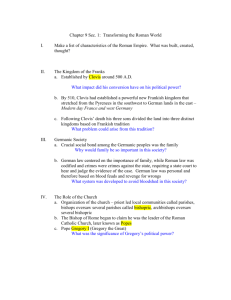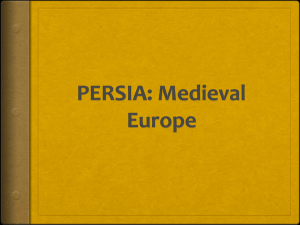Transforming the Roman World
advertisement
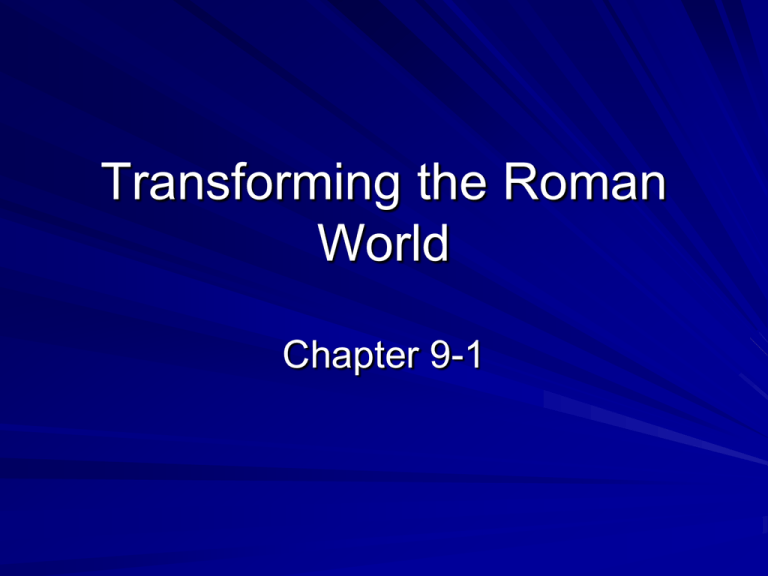
Transforming the Roman World Chapter 9-1 The New Germanic Kingdoms By the third century Germanic peoples had begun to move into the Roman Empire The only German state that survived was that of the Franks which was located in present day France This state was expanded & established by Clovis who had converted to Christianity This conversion was important as it won him the support of the Roman Catholic Church or the Christian Church After his death the kingdom was divided by his sons & Germans & Romans began to intermarry The New Germanic Kingdoms When it came to crimes the Romans regarded crimes as offenses against society while Germanic peoples regarded them as personal offenses against the family This Germanic view often led to feuds between families To avoid this a system based on fines was created called the Wergild or “money for man” This system required the wrongdoer to pay the family of the victim the value of that person in money One way to determine guilt was the ordeal (such as holding a red hot iron) It was believed that divine forces would intervene & not allow any innocent person to be harmed during a physical trial By the end of the fourth century Christianity was the supreme religion of the Roman Empire The bishop of Rome claimed the he was the leader of the entire Roman Catholic Church & took the title of Pope Gregory I, who was pope from 590 to 604 was also the leader of the city of Rome & its surrounding areas He strengthened the power of the papacy and the Roman Catholic Church The Role of the Church The Role of the Church The backbone of the Christian movement were the monks A monk is a person who gives up all worldly goods & dedicates himself totally to God This practice is called monasticism St. Benedict founded a community of Catholic monks who followed a set of strict obedience rules that he wrote Benedicts rule broke the day into activities that were mainly prayer & physical labor All monks took a vow of poverty The Carolingian Empire Charlemagne ruled from 768 to 814 expanding the Frankish kingdom as well as creating the Carolingian Empire By 800 he was crowned the emperor of the Romans Charlemagne had a strong desire to promote learning in his kingdom This desire stemmed from his own curiosity as well as the need to educate the Catholic clergy & government officials This is often referred to as the Carolingian Renaissance or rebirth This rebirth emphasized the classic works of the Greeks & Romans The monasteries & monks played a crucial role in the renaissance as they copied manuscripts
